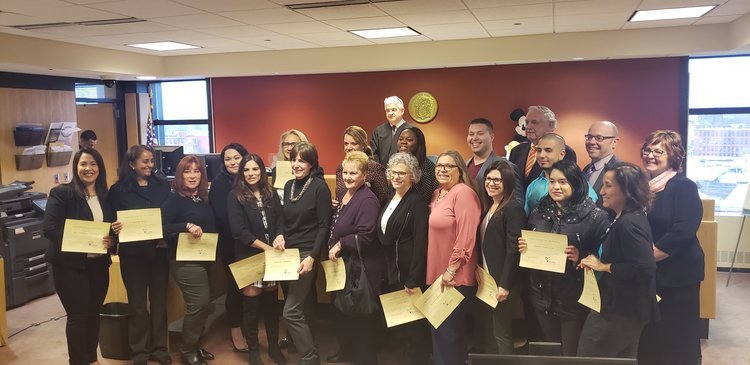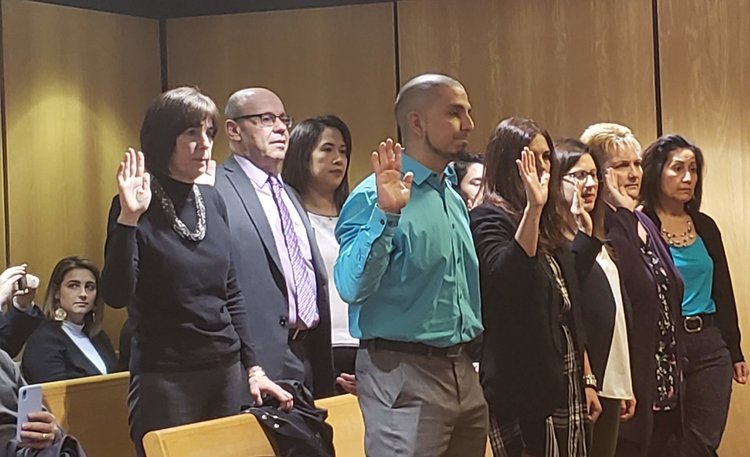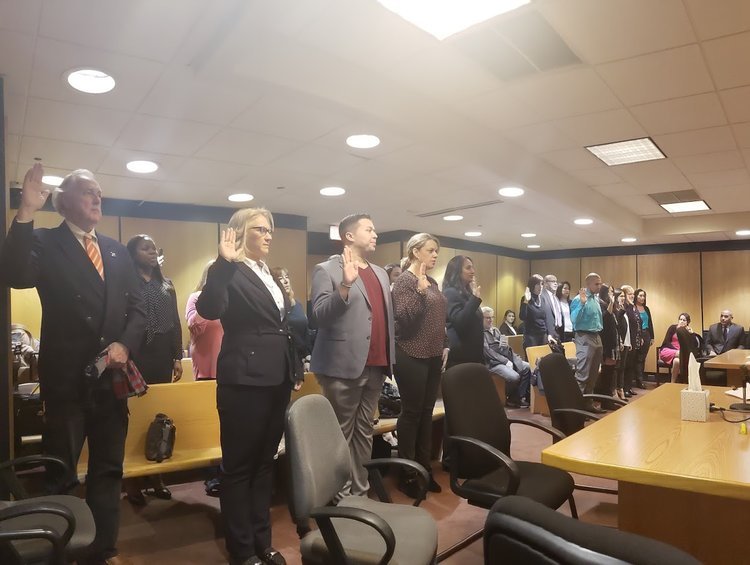Training
CASA Volunteer Training
Approximately four times per year, we offer the 36-hour training course necessary to become a Court Appointed Special Advocate in Passaic and Union Counties.
Volunteers must complete the entire training session. After the training is complete, volunteers are sworn in by a family court judge as Court Appointed Special Advocates for children.
The curriculum includes the following topics: the role of the volunteer, the child welfare system, needs and development of children, trauma, mental health, poverty, professional communication, cultural competence, educational needs, and permanency.
All Information Sessions are in-person and take place at one of three locations:
Wayne office, 415 Hamburg Turnpike, Wayne, NJ 07470,
Elizabeth office, 1143 E Jersey Street, Elizabeth, NJ 07201,
Clark Public Library, 303 Westfield Ave, Clark, NJ 07066.
If you are interested in becoming a CASA, you must first attend a Volunteer Information Session.
APRIL
Wayne office – Wednesday, April 3, at 5:30pm
Wayne office – Monday, April 8, at 12pm
Wayne office – Thursday, April 11, at 5:30pm
Clark Public Library – Monday, April 22, at 5:30pm
Elizabeth office – Tuesday, April 30, at 10am
MAY
Wayne Office — Thursday, May 2 at 5:30pm
Wayne Office — Wednesday, May 8 at 12pm
Clark Public Library — Thursday, May 9 at 5:30pm
Elizabeth Office — Wednesday, May 15 at 12pm
Wayne Office — Friday, May 17 at 12pm
Wayne Office — Monday, May 20 at 10am
Clark Public Library — Thursday, May 23 at 5:30pm
Winter training classes are scheduled to run on Monday and Wednesdays from 5:30–8:30pm on the following dates:
April 22, 2024
April 24, 2024
April 29, 2024
May 1, 2024
May 6, 2024
May 8, 2024
May 13, 2024
May 15, 2023
May 20, 2024
May 22, 2024
A CASA Volunteer Trainer Perspective:
A 36-Hour Transformation or How CASA Volunteer Training Creates
Superhero Advocates
It’s the first night of the CASA volunteer training program, and without fail, each volunteer-in-training is echoing the same concerns.
“I’m not an expert in child welfare, and all I know about the legal system I learned from Law and Order: Special Victims Unit.”
“I’m going to become so emotionally attached! I’m going to want to take the child home with me!”
“How can I know what the child needs? How will I know what is in their best interest?”
And yet, by the last session of the 36-hour volunteer training program, each and every one of them has been transformed into a superhero advocate for children in foster care.
I had the pleasure of watching the final step of the superhero transformation as 20 people received their metaphorical capes. On that day, 20 volunteers took the official oath as Court Appointed Special Advocates for children in foster care.



As a CASA Volunteer Trainer, I had the privilege of training these new advocates, and many others, from start to finish. Most trainees walk in with zero knowledge of the child welfare system, so that’s where we start— from square one.
I would be lying if I said it was always easy. Throughout every training session, we discuss difficult, sometimes quite personal, topics that often elicit emotional reactions from the trainees. Every volunteer-in-training brings with them a depth of personal experiences that in many cases, will make them even stronger advocates. That doesn’t make the topics any easier to discuss sometimes.
Our training program is built to challenge the trainees, in particular to challenge their perceptions of foster care, of what a child truly needs, and how we, as community members, can advocate for those needs. As a trainer, I urge the trainees to dig deeper, to see all of the co-occurring issues that challenge families who become involved in the child welfare system. We discuss how to view people through a resource lens and use a strengths-based approach when advocating. Throughout the training, we work hard to iron out cultural biases, many of which are implicit, living just below the surface.
But leveling out the difficult topics and hard work are the frequent moments of true understanding, deep compassion, and joy. Throughout the training, little by little, the trainees develop the skills to provide child-focused advocacy for our most vulnerable children. By the end of training, these volunteers will not be experts in law, social work, or even child welfare; what they will be an expert in, you ask? They will be the expert in their CASA child. They will be the one who knows, and can advocate for, the unique needs of their assigned child.
As a trainer, when this clicks for the volunteers-in-training, when they realize that, yes, each of them has the tools and the knowledge to be this special person for a child, there is nothing better!

